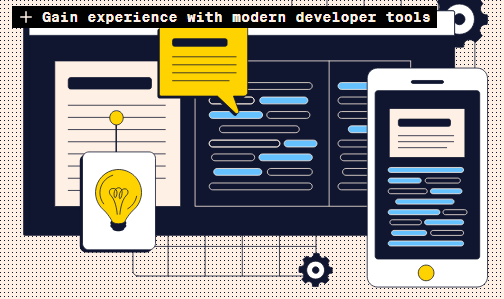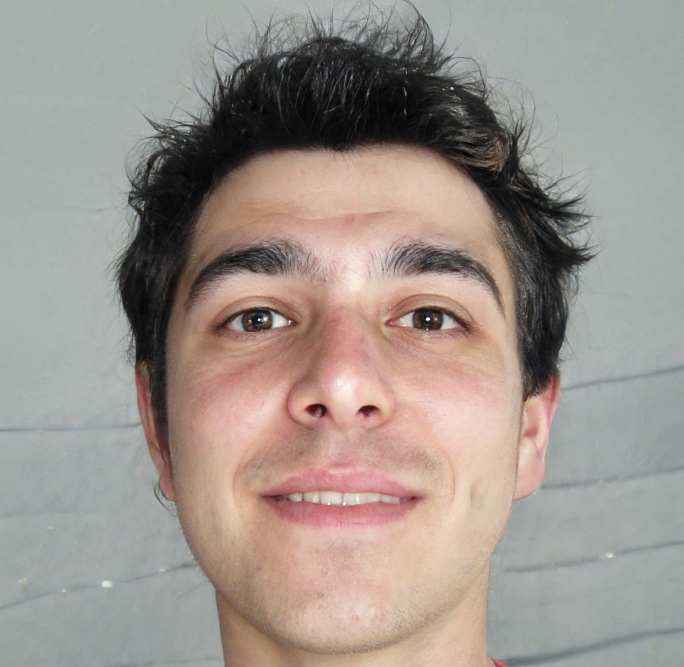
Programming Assignment Help
Students often turn to academic professionals online for programming assignment help. Doing so can help students complete their assignments more quickly and improve their grades. Before writing your programming assignment, make sure that you fully comprehend all requirements set by your professor and meet them properly.
Some services also provide added benefits, like free revisions and 24/7 customer support, which may help when choosing which service to use. These factors should all be taken into consideration before selecting one service over another.
Choosing a service
Learning programming languages has become more than an optional activity among university and vocational course students; rather, it has become a requirement at many institutions and universities. Therefore, Android Programming many students find themselves overwhelmed with coding assignments from professors. Thankfully there are services that provide assistance with programming homework.
When choosing a homework service, it is essential that you select one with top-quality assistance at affordable rates. In addition, make sure that it complies with your school’s policies on academic integrity.
Most reputable homework services are professional and deliver top-quality work on time and within their commitments. Some even provide extra features like free revisions and 24/7 customer support that can increase value of purchases while improving experience overall. Furthermore, these companies may provide money-back guarantees in case their work doesn’t satisfy you, helping reduce risk while providing peace of mind for customers.
Completing the assignment
Before beginning to write your programming assignment, read and follow all general instructions provided by your instructor. Generally these should cover an overview of the assignment as well as tips and advice for writing it, special submission/grading rules, questions that need answering, etc. If anything remains unclear to you, ask for clarification or further explanation from them.
If you’re finding it hard to complete your programming homework, don’t be reluctant to seek assistance. There may be various reasons for seeking programming homework assistance such as time management issues, limited coding knowledge or accessing software; any one of which could impair your ability to produce high-quality code and submit accurate assignments.
Programming can be a difficult subject that takes much work to master. Luckily, there are services online that offer services to assist with your programming assignments – these services often offer 24/7 support, privacy policies and money-back guarantees, Arduino Programming helping improve coding skills as well as earning better grades later on.
Editing the paper
As part of editing, your focus should be on improving the overall quality of your paper. This means enhancing clarity, organization and flow as well as making sure your argument is persuasive and sound. For optimal results, Assembly Programming read your paper out loud to yourself while paying close attention to places where it feels awkward or unclear and mark them for subsequent fix. Allow some time between writing your paper and editing it as this will allow it to chill out and make errors easier to spot.
Homework help websites provide many services, from Q&A with experts, educational videos, practice tests and quizzes, learning modules, math problem-solving tools and one-on-one tutoring to 24/7 availability and one-on-one tutoring sessions. When considering which homework help websites to use for yourself or a child, be sure to read reviews first as this can provide insight into any negatives associated with their use – reviews also can give an indication of cost differences that might exist between different sites.
Submitting the assignment
Based on your course, instructors may assess submissions by reading source code, reviewing screen shots and running interactive auto-check. They then assign grades using an assigned rubric; additionally they consider other deliverables such as test reports or proof that you implemented specific techniques into your code.
Students typically seek Programming Homework Help when time management issues make completing coding assignments challenging, or when limited knowledge or access to required software prevent them from doing it in time. Furthermore, C# Programming some may wish to increase their grades in programming courses.
These services often offer 24-hour support through chat or email and competitive prices, guaranteeing their work as plagiarism-free and quality assured by editors vetted for quality control. Students benefit greatly from using such services because it allows them to focus on other coursework while receiving top-quality papers that meet all requirements.
Find what's right for you
Find the best programming service tailored to your needs with expert solutions.
What do you want to learn about?


Programming Homework Help
Programming can be an intricate subject that requires extensive study. Students seeking assistance in programming assignments should keep in mind these factors when selecting a quality service:
Search for services with an effective revision and refund policy as well as extra features like free revisions and 24/7 customer support. In addition, C++ Programming plagiarism-free guarantees and direct communication between writer and assignment should also be sought after.
Revision and Refund Policy
Programming assignments often present students with complex coding tasks that require in-depth knowledge of programming languages and concepts, with tight deadlines making completion even more daunting. Thankfully, CSS Programming numerous online services offer professional help with programming assignments to save students both time and effort while guaranteeing high-quality solutions.
Reputable companies provide plagiarism-free solutions based on original ideas and research, using plagiarism detection software to monitor assignments for any accidental copying. They are transparent about turnaround times and can meet urgent deadlines.
Before selecting a programming assignment help service, it is crucial to vet its reputation and customer reviews. Aim for companies with proven customer satisfaction records and outstanding teams of writers as this will give an indicator of quality work. Furthermore, look for money-back guarantees should you not be completely satisfied with their final product; additionally reputable services should provide free revisions within 48 hours for both grammar issues and conceptual issues.
Additional Features
Students often struggle to complete their coding assignments due to time or conceptual issues, making programming assignment help an ideal way to overcome such difficulties and secure high grades. Programming assignment help services offer various features including round-the-clock support, confidential assistance and rock-solid guarantees – which makes availing of this help an excellent solution to reaching academic excellence.
Programmers offer assistance with a range of programming languages, such as Python, Java, C++, HTML/CSS, JavaScript and PHP. In addition, they assist with web development projects and front-end and back-end coding tasks as well as complex concepts like data structures and algorithms.
Professionals working for these services possess an in-depth knowledge of various programming languages and concepts, which allows them to provide expert guidance to students as they work through any doubts they may have regarding them. Furthermore, Go Programming these services offer unlimited revisions and provide custom solutions based on individual requirements – two features which set them apart from competitors.
Effective Communication
Effective communication enables developers to exchange ideas, clarify project expectations and align team members. It helps avoid disputes and expedite development processes; its keystones being clear language and respectful delivery – but for this goal to be realized it requires creating an atmosphere of transparency, trust, and empathy between team members.
Nonverbal communication also plays an integral part of communication, including facial expressions, body movements, gestures and eye contact. Nonverbal interactions reveal more about someone’s emotions than words alone can. Therefore it’s essential that people learn how to listen actively and respond appropriately.
Effective communicators know it is essential not to jump to conclusions or mix facts and inferences, HTML Programming be open to feedback from colleagues and superiors and master written communication – as many jobs require this skill set – by setting basic guidelines and practicing active listening techniques; furthermore avoiding distractions and interruptions as much as possible.
Timely Completion
Programming can be an extremely time-consuming field and meeting deadlines can often prove challenging for students, which is why finding reliable programming assignment help that delivers solutions on time is so essential. While using coding assignment help services is legal and ethical, Java Programming finding trustworthy companies may prove more challenging – however there are strategies available that can assist students in finding reliable services.
Look for a service that provides multiple forms of communication – live chat, email and phone support are ideal – that allows you to remain in constant touch with the programmer assigned to you throughout the process. A reliable provider should offer refund policies as well as guarantees original work.
Look for a service that provides additional resources, like tutorials and guides, that can enhance your understanding of programming concepts while acting as valuable learning aids. Furthermore, prioritize data security and confidentiality over convenience when selecting a provider.
Prog Homework
Equip your team with skills for today — and tomorrow
Reach business and professional goals with technical training for your whole team.


Pay Someone To Take My Programming Assignment
Writing a programming assignment can be challenging for students, Kotlin Programming particularly if the deadline is approaching quickly. To avoid becoming stuck, it’s wise to begin by carefully reading through all instructions provided with the assignment and get acquainted with its format before beginning work on it.
This will include the amount and style of content to write. Furthermore, it would be beneficial to know which programming languages may be involved.
Reasons to Hire an Expert
Expertise can save time. By hiring an expert for any given project, MATLAB Programming the duration can be reduced dramatically – this benefit alone makes hiring one worthwhile for any business.
Experts offer invaluable expertise that cannot be gained within an internal team, helping ensure projects are completed on schedule and correctly. This type of information can ensure projects run smoothly and on schedule.
When hiring an expert, seek someone with an interest in both your company and industry. This will allow them to feel more engaged with projects, which could result in higher-quality work.
Hiring experts to complete coding assignments involves ethical considerations. Relying on others to complete them undermines your learning process and may have serious academic repercussions, so it is best to seek guidance and assistance from educators or tutors to enhance your abilities and ensure academic success.
Time Constraints
Time management is an integral component of project planning. Without it, projects could experience serious delays and wasteful spending which would eat away at their profits and decrease bottom lines significantly.
Time constraints come in two varieties – internal and external. External time restrictions are set by clients and management, while internal ones include resource allocation timelines and workload management timelines. All resources working on any project will encounter execution restrictions at some point or another, so understanding how best to work around them is vital for project success.
Problems associated with time constraints include being difficult to meet; for instance, Perl Programming clients might set unrealistic deadlines that cause major delays and miss their original completion dates. Furthermore, an inexperienced staff may lack knowledge about prioritizing tasks that affects overall progress of a project; thus making software tools that help allocate resources and monitor performance real time critical.
Complexity of Tasks
Students often face the difficulty of balancing academic studies with work and personal obligations, making it hard to devote enough time and energy toward one programming assignment at a time. Paying an expert to do it for them may save both time and stress in this scenario.
Reputable online companies will have the resources available to them to complete complex programming tasks on time and within tight deadlines for customers with demanding requirements. Furthermore, they can often complete these jobs on the first attempt without needing multiple revisions before providing the finished product to customers.
Task complexity has a direct influence on translation performance. Therefore, when assessing student translation performances it is vitally important to factor in task complexity levels as these may require greater amounts of cognitive effort than simple texts, PHP Programming thus negatively affecting translation performances overall. Therefore higher levels of task complexity can negatively influence students’ translation performances overall.
Lack of Knowledge
Reputable programming assignment help companies hire professional programmers with expertise across different programming languages, meaning they are equipped to complete assignments of any complexity without fail. Therefore, Python Programming it is much safer to entrust these companies than freelancers who may charge less but deliver subpar work. Furthermore, such companies will guarantee completion within your specified timeline, guaranteeing error-free and fully functional programming assignments and saving both time and stress for you.
Hire Someone To Do My Programming Assignment
Help with coding homework is often sought by students overwhelmed by their assignments, R Programming with these services offering code assistance, debugging and optimization, as well as teaching complex programming concepts.
Make sure that the service you hire is reliable, offering an open and fair revision and refund policy, as well as offering 24/7 customer support.

Cost-effective
There are various online services that provide programming homework assistance. These companies employ qualified and experienced professionals familiar with various programming languages who can create code quickly and efficiently while offering quality service at a fair price.
Selecting a reliable coding assignment help website is critical to academic success. A good site will guarantee your assignments are completed with custom content and proper citations; Ruby Programming some may even offer extra learning resources like tutorials and code samples.
Students often require Programming Assignment Help due to various responsibilities and difficulties applying theoretical knowledge in practice. Hiring an expert to complete assignments is a legitimate practice and may help ensure that you achieve higher grades than ever.
Timely
Programming assignments are complex tasks that require careful attention to every detail. Selecting a reliable service will ensure your assignment is completed on time with high-quality content, Rust Programming at an economical price quote tailored specifically to your needs.
A great programming assignment help service will prioritize timeliness, originality, and round-the-clock customer support to answer any of your queries about their writing services. With them at your side, you can feel secure that your homework is being written by experienced professionals – something procrastination often hinders students with. Staying disciplined will enable you to complete all coding assignments easily; just avoid skipping classes to gain extra time for assignments!
Plagiarism-free
Plagiarism is an academic offense with potentially grave repercussions, Swift Programming so when hiring a programming assignment help service, make sure they offer plagiarism-free work and use detection tools to check assignments for plagiarized work. Also check for their revision and refund policies to avoid being fooled into paying more than is needed for help.
Programming assignments are complex and can require extensive time commitment from students who already have multiple courses and commitments to complete. Hiring someone else to do your programming homework can free up precious hours for you while improving academic performance.
Find a trustworthy programming assignment help service by looking for one that offers quality solutions at a fair price, along with value-added features like 24/7 customer support and unlimited revisions. Also look for services offering direct communication between yourself and an assigned expert so you can ask questions or clarify requirements as necessary.
Confidentiality
Programming is an indispensable skill in many disciplines, yet students often struggle to comprehend its intricate language structures and processes. That is why many rely on professional experts for Programming Assignment Help services.
Reputable coding assignment help services prioritize client privacy by employing strict protocols to protect personal information and assignment content, such as encryption, limited employee access and strict retention policies. They also offer clear revision and refund policies.
Reputable coding assignment help services will sign a non-disclosure agreement (NDA) to protect your confidentiality and prevent your work from being shared or reused without your approval. Furthermore, Scala Programming they guarantee original work to uphold academic integrity and avoid plagiarism; using secure communication channels to exchange project details to minimize risks of third-party intercepts of sensitive information.
Communication
Programming Assignment Help services that excel will stay in communication with their client at every stage. They’ll explain their approach and provide an accurate timeline for delivery – this way avoiding delays while meeting requirements of assignments more easily.
Additionally, they should be available to answer your queries. Look for services with multiple communication channels – email and live chat for example – so you can contact them whenever necessary.
Some services also provide extra features, like free revisions or 24/7 customer service, SQL Programming that can make a real difference to the quality of your assignment and help you learn from experience. Just make sure to read their terms of service carefully in order to meet all your expectations!
Stories from real people
Read inspiring stories from the Codecademy community.






